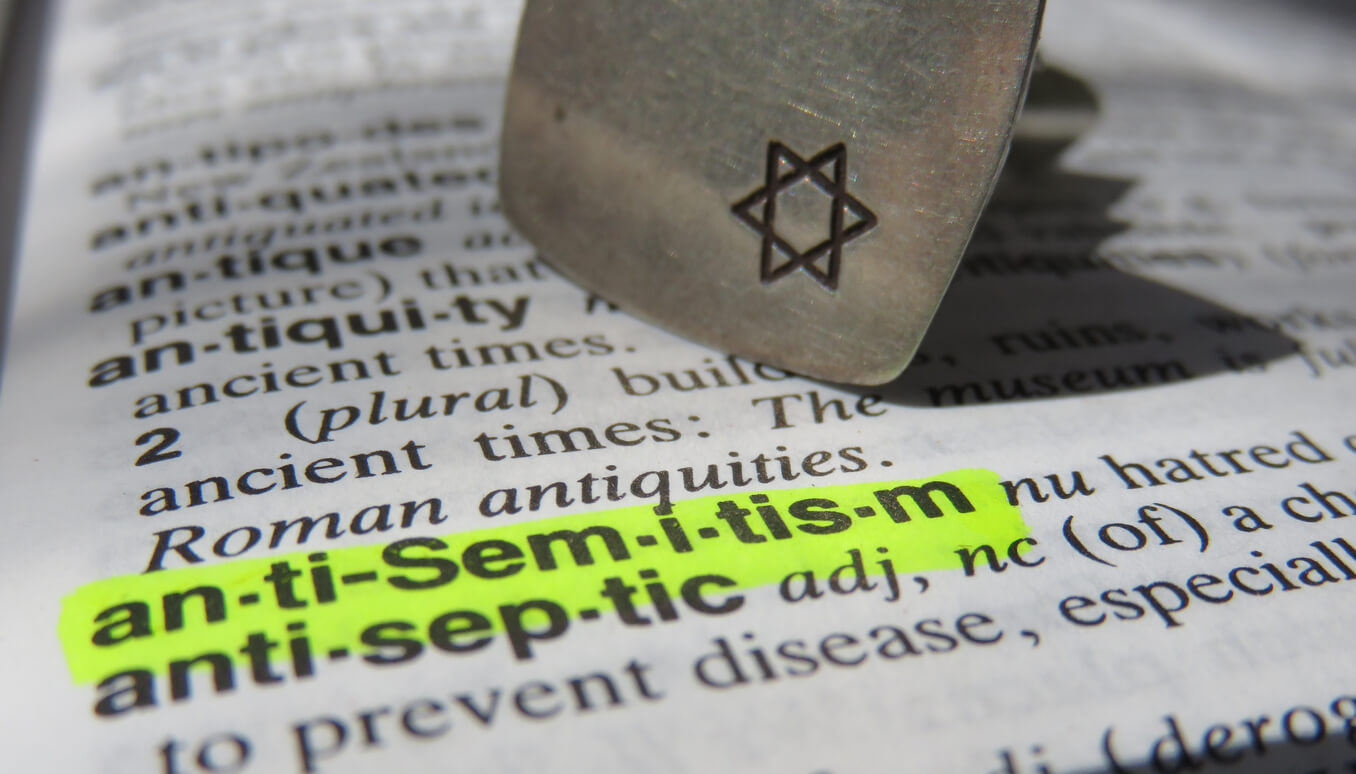The spelling changed but the meaning is the same: Dictionary.com formally adopts ‘antisemitic’
Many organizations have dropped the hyphen and capital S in recent years, citing the need for clarity when it comes to hate

Anti-Semitic no more: Dictionary.com has adopted antisemitic (no hyphen, no capital S) as the proper term, joining a movement that has gained traction among many Jewish and anti-hate organizations. Photo by tzahiV/iStock
The definition of antisemitism hasn’t changed, but as of Tuesday, the way the word is written has, at least for one source.
According to Dictionary.com, anti-Semitism is out and antisemitism will be the preferred term going forward, without the hyphen or capital S.
The reason for the change, according to the updated entry, is that the word “semitic” describes a group of languages that includes, among others, Arabic, Hebrew and Phoenician. But the term “antisemitic” refers only to prejudice against Jews.
“The spelling anti-Semite falsely implies prejudice against all of the diverse groups of people who speak any of these languages,” the new entry states. “However, that is not how antisemite is used. Rather, the ‘Semite’ in antisemitism is a euphemism for ‘Jew.’”
The term “antisemitism” dates back almost 150 years to German journalist Wilhelm Marr. Since its inception, the term was used to refer to Jewish people, despite the word “semitic” being coined as part of a racialist pseudoscience effort to lump together a variety of peoples from Western Asian and North Africa.
The unhyphenated version has become increasingly accepted in recent years, including at the Forward. In 2020, Deborah Lipstadt, the noted Holocaust historian and currently U.S. special envoy for monitoring and combating antisemitism, explained why she believed antisemitism is the more accurate version of the word by noting that “anti-Semitism is not hatred of Semitism or Semites … anti-Semitism is Jew-hatred.”
Numerous Jewish and anti-hate organizations have given their own reasoning for adopting antisemitism as the preferred term. The Anti-Defamation League has noted that “There is no such thing as a Semitic peoplehood,” meaning “one could speak a Semitic language and still have anti-Semitic views.”
“While removing a hyphen by itself won’t defeat antisemitism, we believe this slight alteration will help to clarify understanding of this age-old hatred,” they added.
The International Holocaust Remembrance Alliance explained its decision to not use a hyphen by saying, “Antisemitism should be read as a unified term so that the meaning of the generic term for modern Jew-hatred is clear. At a time of increased violence and rhetoric aimed towards Jews, it is urgent that there is clarity and no room for confusion or obfuscation when dealing with antisemitism.”
Despite the increasingly popular consensus on how the term is written, some have pushed to do away with the word altogether. Stephen D. Smith, the executive director of the USC Shoah Foundation and UNESCO Chair on Genocide Education, explained in an op-ed that during a time when hate is on the rise, people must speak clearly. Therefore, he believes the appropriate term is “neither antisemitism nor anti-Semitism: It’s plain and simple Jew hatred.”
The Associated Press and The New York Times both use antisemitism as one word, no hyphen, as do Oxford reference guides. But other sources, including Merriam-Webster, use the hyphenated term, and some legacy publications, including The Atlantic and The New Yorker, use the hyphenated version as well.
The Forward is free to read, but it isn’t free to produce

I hope you appreciated this article. Before you go, I’d like to ask you to please support the Forward.
Now more than ever, American Jews need independent news they can trust, with reporting driven by truth, not ideology. We serve you, not any ideological agenda.
At a time when other newsrooms are closing or cutting back, the Forward has removed its paywall and invested additional resources to report on the ground from Israel and around the U.S. on the impact of the war, rising antisemitism and polarized discourse.
This is a great time to support independent Jewish journalism you rely on. Make a gift today!
— Rachel Fishman Feddersen, Publisher and CEO
Support our mission to tell the Jewish story fully and fairly.
Most Popular
- 1

Fast Forward Ye debuts ‘Heil Hitler’ music video that includes a sample of a Hitler speech
- 2

Opinion It looks like Israel totally underestimated Trump
- 3

Culture Cardinals are Catholic, not Jewish — so why do they all wear yarmulkes?
- 4

Fast Forward Student suspended for ‘F— the Jews’ video defends himself on antisemitic podcast
In Case You Missed It
-

Culture Should Diaspora Jews be buried in Israel? A rabbi responds
-

Fast Forward In first Sunday address, Pope Leo XIV calls for ceasefire in Gaza, release of hostages
-

Fast Forward Huckabee denies rift between Netanyahu and Trump as US actions in Middle East appear to leave out Israel
-

Fast Forward Federal security grants to synagogues are resuming after two-month Trump freeze
-
Shop the Forward Store
100% of profits support our journalism
Republish This Story
Please read before republishing
We’re happy to make this story available to republish for free, unless it originated with JTA, Haaretz or another publication (as indicated on the article) and as long as you follow our guidelines.
You must comply with the following:
- Credit the Forward
- Retain our pixel
- Preserve our canonical link in Google search
- Add a noindex tag in Google search
See our full guidelines for more information, and this guide for detail about canonical URLs.
To republish, copy the HTML by clicking on the yellow button to the right; it includes our tracking pixel, all paragraph styles and hyperlinks, the author byline and credit to the Forward. It does not include images; to avoid copyright violations, you must add them manually, following our guidelines. Please email us at [email protected], subject line “republish,” with any questions or to let us know what stories you’re picking up.













